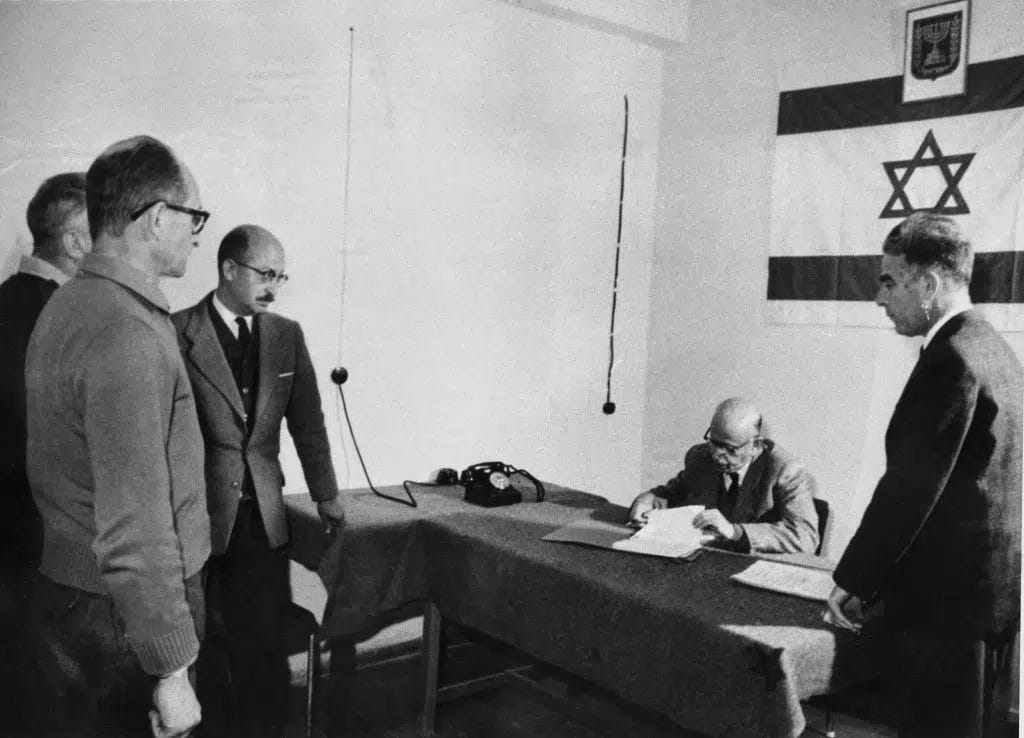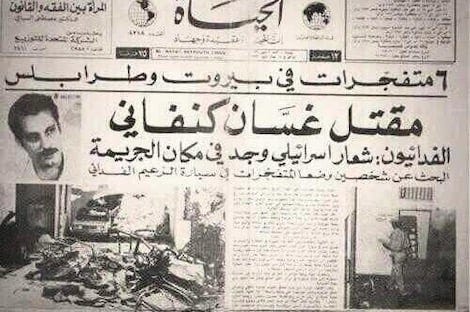Mossad: Transnational Terrorism
In the service of the entity it serves, Israel’s intelligence agency Mossad — a formal state institution with hierarchical ties to government, military, and other nationalist leaders — has been involved since its inception in 1949 in a litany of crimes and violations against state sovereignty, including those of Israel’s own allies.
These include covert and sensitive missions for Israeli national security, encompassing assassination, espionage, torture, and multiple financial and political offenses.
Since October 7, the notorious agency intensified its operations, extending not only beyond Israel’s borders but also conducting internal missions outside its jurisdiction, overlapping with the genocide underway in Gaza.
This article briefly examines Mossad’s most significant operations: What is its mission? Whose interests does it serve? What methods does it employ? How does the international community regard it — as a transcontinental terrorist organization?
Mossad: Roots of a Malignant Tree
Shortly after the establishment of the state, Prime Minister David Ben-Gurion founded Mossad and Shin Bet. In contrast to its portrayal as a democratic institution, Mossad rapidly developed a criminal reputation under the radar, creating a deep, secretive state alongside official institutions.
Unlike military intelligence (Aman) and domestic security (Shin Bet/Shabak), Mossad’s mandate focuses on covert tasks beyond Israel’s borders—aligning with the young state’s reliance on military-intelligence strength over traditional diplomacy.

Ben-Gurion shrouded Mossad and Shin Bet in confidentiality; their names remained undisclosed to the public until the 1960s. With no formal charters, budgets, or oversight, Mossad advanced broad objectives tied to Israel’s national security: neutralizing military threats, gathering global intelligence, targeting those who attack Israelis or Jews abroad, and facilitating Jewish migration to Israel.
Operations: From Espionage to Mass Migration
Mossad’s global presence spans nearly every nation, involving intelligence gathering, collusion, espionage, and recruitment. Among its most notorious agents was Eli Cohen, who penetrated Syrian leadership as “Kamel Amin Thaabet,” providing strategic intelligence that aided Israel in the 1967 war.
Mossad also portrayed itself as avengers of Jewish suffering. In one notable operation, it seized Nazi Adolf Eichmann in Argentina and covertly conveyed him to Israel for trial—a story later depicted in Netflix’s The Final Act.
Post-1972 Munich Olympics massacres, acting on behalf of Golda Meir, it launched revenge missions to “deliver justice” and freed Israeli hostages. In the 1980s, “Operation Brothers” staged a faux holiday resort on Sudan’s Red Sea coast to smuggle thousands of Ethiopian Jews to Israel.
Multivalent Assassinations
Mossad has repeatedly targeted Palestinian, Arab, and international military and political leaders. Since the 1960s, it has conducted dozens of assassination missions abroad—eliminating resistance leaders like Khalil al-Wazir, Wadie Haddad, Saleh al-Arouri, and Mahmoud al-Mabhouh, along with Hezbollah and Iranian figures.
Characterized by long-term planning, it took four years to plan Mahmoud al-Mabhouh’s killing in a Dubai hotel in 2010. In Wadie Haddad’s case, Mossad covertly replaced his toothpaste with a toxic variant. It also targeted intellectuals such as Ghassan Kanafani and Naji al-Ali.
From the 2010s, Mossad has targeted nuclear scientists—most recently, Iranian physicist Mohsen Fakhrizadeh in November 2020—marking the fifth assassination of such figures since 2010. It also orchestrated bombings of nuclear reactor sites: Iraq’s Osirak (1981) and Syria’s al-Kibar (2007).
Moreover, journalist Ronen Bergman exposed Mossad’s role in commandeering COVID-19 medical supplies and testing resources on behalf of Israeli national interest.
Notable Failures
Despite its reputation, Mossad has not succeeded in every undertaking. In one major blunder, a 1973 assassination attempt in Norway mistakenly killed an innocent Moroccan. Although Mossad later eliminated the target in Beirut in 1979, that early mistake harmed the agency’s standing.
Perhaps its most notorious failure occurred in Jordan (1997), when Mossad attempted to poison Hamas leader Khaled Mashal. The agent was caught; Jordan threatened to revoke its peace treaty unless Israel provided an antidote—a diplomatic humiliation Mossad has never fully overcome.
Reporting by The Guardian charged former Mossad chief Yossi Cohen with threatening ICC prosecutor Fatou Bensouda to deter investigations into alleged Israeli war crimes. Though Bensouda noted grounds for inquiry before leaving office in 2021, Mossad succeeded in influencing U.S. sanctions against ICC officials between 2019 and 2020.
Mossad has also pursued UN agencies like UNRWA, blaming employees for the October 7 attacks to justify funding cuts and pressure. It has harassed journalists and rights activists exposing Israeli war crimes, including Richard Falk, Richard Goldstone, and Israeli journalist Gideon Levy, via threats and intimidation orchestrated abroad.
Broad Pressure and Cyber Campaign
Mossad exerts diplomatic and financial coercion. It has pressured foreign governments to avoid criticism or transactions potentially detrimental to Israel. Examples include intervention with France in the 1980s and Cyprus in the 1990s, alongside cultivating pro-Israel lobbies in Western nations.
Mossad has also embraced cyber operations: Stuxnet (2010) disrupted Iran’s nuclear program; Prism-like hacking supported Syrian reactor bombing (2007); Flame malware (2012) targeted critical infrastructure. Currently, its digital apparatus spreads disinformation, manipulates public opinion, hijacks accounts, and constructs fake narratives regarding Middle East events.
Mossad engages in paper forgery, passport falsification, financial crimes, espionage, torture, kidnapping, and extrajudicial killing—all illegal under national and international law, including the UN Charter, Tokyo Convention, ICCPR, Convention against Torture, cyber norms, money laundering statutes, and Arms Trade Treaty.
Functioning Above Law
Though ostensibly shielded by diplomatic immunity and Israel’s Western alliances, Mossad has faced consequences: in the UK (1987), Ireland and Australia (2010), and New Zealand (2004) where agents used forged passports. Domestic prosecutions occurred, though often resulted in minimal sentences.
International legal actions have largely faltered. Though extraditions, indictments, and ICC arrest warrant motions were attempted (notably by Mahmoud al-Mabhouh’s family), most failed due to diplomatic immunity and state protection.
The UN typically expresses concern but rarely takes decisive action. Resolutions condemning Mossad, calling it a threat to global peace (e.g., following the 1988 killing of Khalil al-Wazir in Tunisia), remain largely symbolic.
Mossad recently admitted being caught off-guard by October 7 events. Since then, its operations have escalated amid the Gaza war: forming a specialized unit to target Hamas leaders implicated in October 7, offering military intelligence support, deploying AI-guided robots to inspect tunnels, coordinating nighttime strikes, and negotiating hostage releases alongside Egyptians, Qataris, and Americans.
Its extraterritorial assassination campaign continues unabated, targeting figures like Saleh al-Arouri, Hezbollah commanders, and several Iranian officials.








